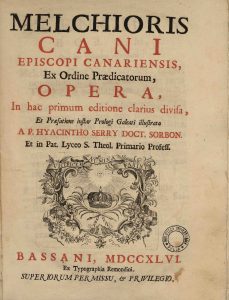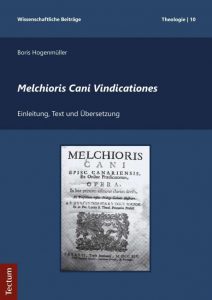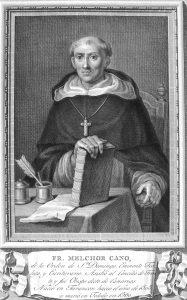Date: 15.01.2020
Time: 14:30 – 16:00
Speaker: Boris Hogenmüller (Würzburg)
Organisation: Christiane Birr, José Luis Egío
Place: MPIeR
Room: Z01
With his extensive and complex major work De locis theologicis, Melchor Cano layed the foundations of modern dogmatics in theology. A German translation of this work was carfried out from 2006 to 20014 in the DFG project «Melchior Cano De locis theologicis. Critical Edition of the Latin Text and German Translation» by Elmar Klinger, Thomas Franz and Boris Hogenmüller. Subsequently, Hogenmüller edited and translated the Melchiori Cani Vindicationes by the French Dominican François-Jacques-Hyacinthe Serry, published in 1714, with which Serry defended Cano and the Loci against various theological-literary attacks. In the colloquium Boris Hogenmüller will talk about Cano, his work and its reception in the early modern period and thus give an insight into the highly intense theological-scientific discussions of the 16th and 17th centuries.
The Colloquium will be held in English.


